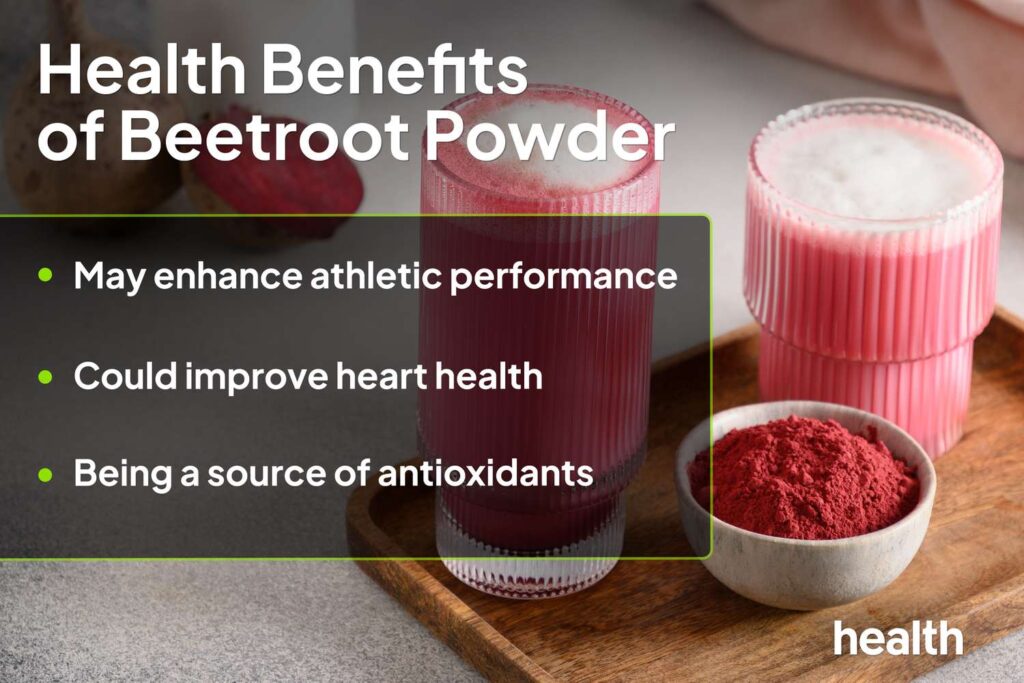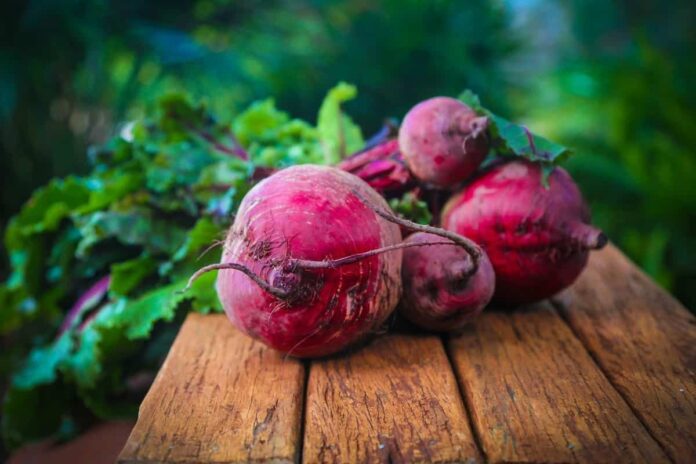Introduction

Beetroot, commonly known as Chukandar in South Asia, is a nutrient-rich root vegetable celebrated for its vibrant red color, earthy taste, and versatile health benefits. Beyond its culinary uses, beetroot is prized in herbal and alternative medicine for its therapeutic properties. This article explores the various forms of herbal beetroot, its benefits, and potential side effects.
Forms of Herbal Beetroot
Fresh Beetroot
Consumed raw, boiled, or roasted.
Often used in salads, juices, and soups.
Made by dehydrating and grinding beetroot.
Used as a natural food colorant, in smoothies, or as a dietary supplement.
Beetroot Juice
Freshly extracted juice from raw beetroot.
Commonly consumed for an instant nutrient boost.
Available as supplements, offering a concentrated dose of beetroot extract.
Beetroot Tea
Made by steeping dried beetroot pieces in hot water.
Beetroot Extract
A concentrated liquid used in skincare, herbal remedies, or food preparations.
Benefits of Herbal Beetroot (Chukandar)
Boosts Cardiovascular Health
Rich in nitrates, beetroot helps lower blood pressure by improving blood vessel dilation.
Supports overall heart health and reduces the risk of heart diseases.

Enhances Physical Performance
Beetroot improves stamina and endurance by increasing oxygen efficiency in muscles.
Popular among athletes for its performance-enhancing properties.
Rich Source of Antioxidants
Contains betalains, powerful antioxidants that combat oxidative stress and inflammation.
Supports Digestive Health
High in dietary fiber, beetroot aids digestion and promotes gut health.
Detoxifies the Liver
Betalains in beetroot enhance liver function by supporting the detoxification process.
Improves Brain Function
Nitrates in beetroot boost blood flow to the brain, improving cognitive function and reducing the risk of dementia.
Promotes Healthy Skin
Rich in vitamins C and E, beetroot contributes to glowing skin and fights signs of aging.
Supports Weight Loss
Low in calories and high in fiber, beetroot helps in managing weight effectively.
Side Effects of Herbal Beetroot
While beetroot is generally safe for most people, excessive consumption can lead to certain side effects:
Beeturia

A harmless condition where urine and stool turn red or pink after consuming beetroot.
Kidney Stones
Beetroot is high in oxalates, which can contribute to kidney stone formation in susceptible individuals.
Low Blood Pressure
Excessive beetroot consumption may cause a significant drop in blood pressure, especially for those already on blood pressure medications.
Allergic Reactions
Rare but possible, symptoms may include rashes, itching, or swelling.
Digestive Issues
Overconsumption can lead to bloating, gas, or diarrhea in some people.
Iron Overload
High iron content in beetroot may pose issues for individuals with conditions like hemochromatosis.
This Article is for Basic Information. Contact a professional doctor before using it.
HAKEEM KARAMAT ULLAH
+923090560000




